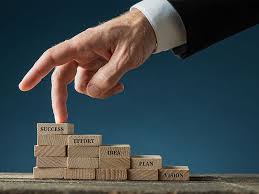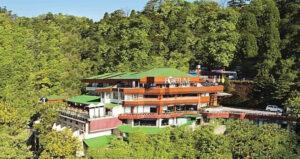
What is Career Development?
Career development refers to the lifelong process of managing learning, work, leisure, and transitions to move toward a personally determined and evolving preferred future. It encompasses an individual’s experiences, growth, and progression within a chosen field or occupation, aiming not only for professional advancement but also personal fulfillment and satisfaction. This multifaceted journey involves various stages, strategies, and actions that enable individuals to explore, plan, and navigate their career paths.
At its core, career development involves a series of intentional steps taken by individuals to enhance their skills, knowledge, and expertise while adapting to changes in the work landscape. It’s not merely about climbing the hierarchical ladder within an organization but also about honing one’s abilities, expanding their network, and identifying opportunities aligned with their interests and aspirations.
Exploration stands as an initial phase, where individuals assess their interests, strengths, values, and ambitions. This self-reflection helps in understanding one’s preferences and matching them with potential career options. Tools like personality assessments, skills inventories, and career counseling aid in this discovery process, guiding individuals toward fields that resonate with their strengths and passions.
Once a direction is identified, strategic planning becomes crucial. Setting short-term and long-term goals, acquiring relevant education or training, and gaining practical experience are vital elements. Continuous learning and skill development are essential in today’s dynamic job market, where technological advancements and industry demands evolve rapidly. Pursuing certifications, attending workshops, or enrolling in courses can significantly contribute to staying competitive and adaptable.
Networking also plays a pivotal role in career development. Establishing and nurturing professional relationships can provide insights, mentorship, and potential opportunities. Engaging in professional associations, attending industry events, and leveraging online platforms are effective ways to expand one’s network.
Adaptability and resilience are indispensable traits in the journey of career development. Unexpected changes, setbacks, or shifts in the job market are inevitable. Embracing change, learning from failures, and being open to new opportunities enable individuals to navigate through uncertainties and emerge stronger.
Moreover, career development isn’t a linear path; it involves transitions and changes. Moving between jobs, industries, or even career fields is increasingly common. Embracing these transitions as opportunities for growth and exploration can lead to a more fulfilling and diverse career trajectory.
Organizations also play a significant role in fostering career development among their employees. Providing training programs, mentorship opportunities, career pathways, and a conducive work environment that encourages growth and skill enhancement contribute to the professional development of their workforce.
In essence, career development is a continuous, dynamic process that involves self-reflection, planning, learning, adaptation, and resilience. It’s about proactively shaping one’s professional journey to align with personal goals and aspirations while staying adaptable in a rapidly changing work landscape. Ultimately, it aims to achieve not just professional success but also personal satisfaction and fulfillment in one’s chosen career path.



